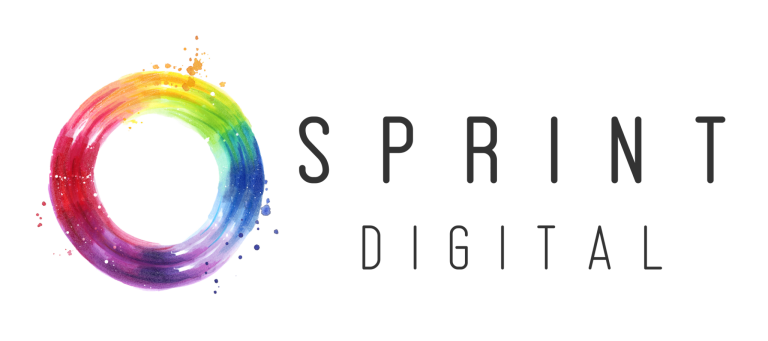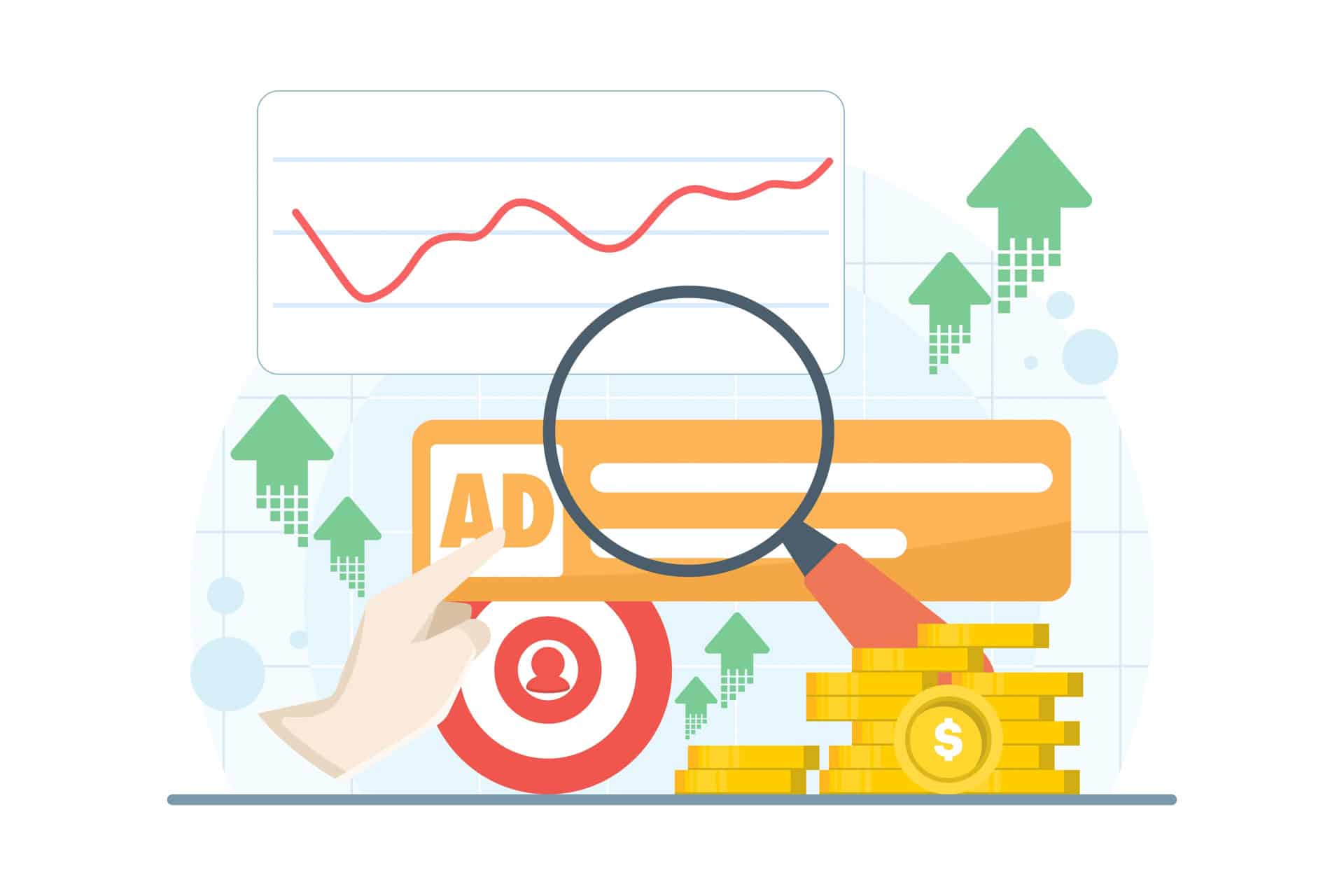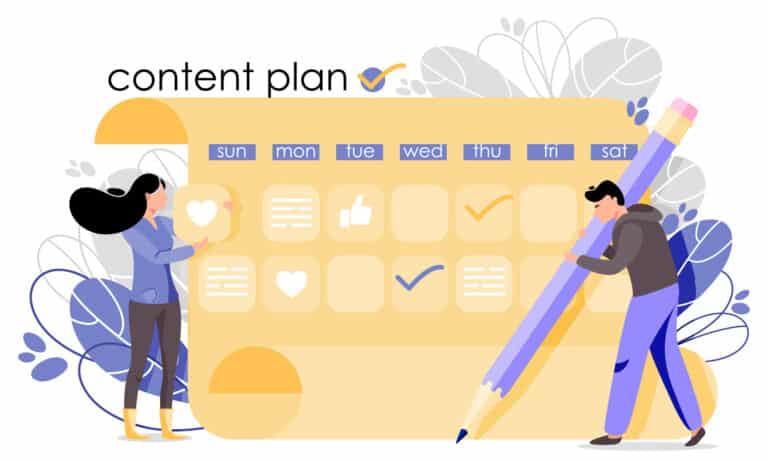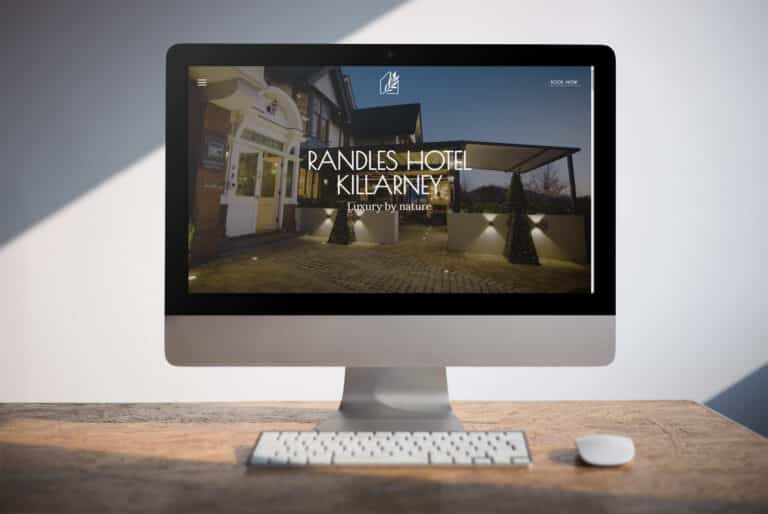Whether you’re looking for a hotel, a roofer, a caterer or even a new house, there is usually one place you’ll go looking for answers – a search engine. More than 90% of online experiences start with a search engine and 90% of all searchers in the world use one search engine – Google. Google isn’t just the leading search engine, it is the dominant player. While search engines like Bing, Yahoo! and Baidu take the number two, three and four spots respectively, their market share is tiny compared to Google (although when it comes to product searches, Amazon is beginning to eat into Google’s market share).
All these search queries on Google drive two very valuable sources of traffic to websites: paid search traffic and organic search traffic. On Google (and many other search engines), the search engine results page is divided into two sections – organic results and paid results. Usually, the first few results are ads while the middle results are organic results that the search engine felt were relevant to your query. Sometimes, there can be ads at the bottom of the search engine results page (SERPS) as well.
WHAT IS ORGANIC SEARCH?
Organic search traffic comes from people finding your website amongst the unpaid section of the search engine results page (organic results). Organic search results are the “natural” results that Google’s algorithm thinks have the most relevant and authoritative information for your search. Optimising your website for search engine optimisation (SEO) influences your website’s ability to rank higher organically for relevant keywords in the SERPs.
EXAMPLE OF GOOGLE SEARCH RESULTS. INCLUDING ORGANIC SEARCH TRAFFIC, PAID SEARCH TRAFFIC AND HOTEL ADS.
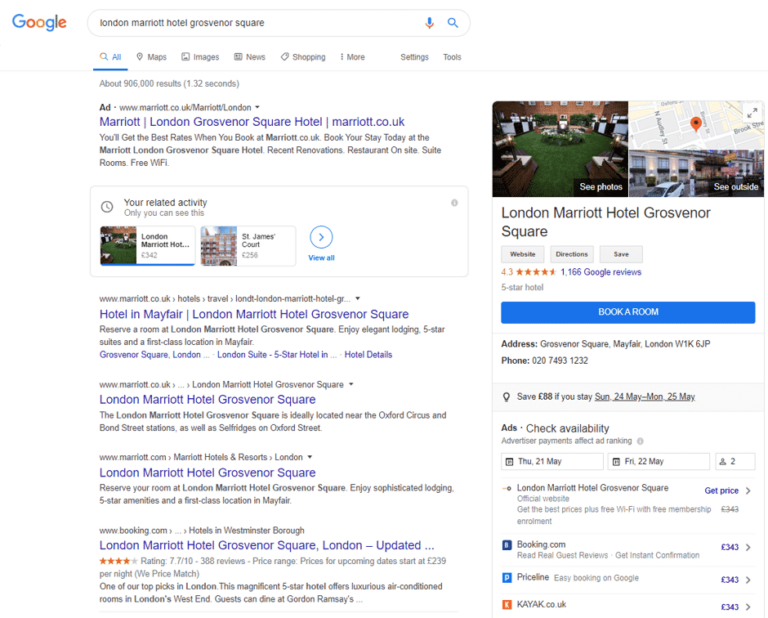
GOOGLE SEARCH RESULTS WITH PAID TRAFFIC, ORGANIC TRAFFIC AND SHOPPING ADS.
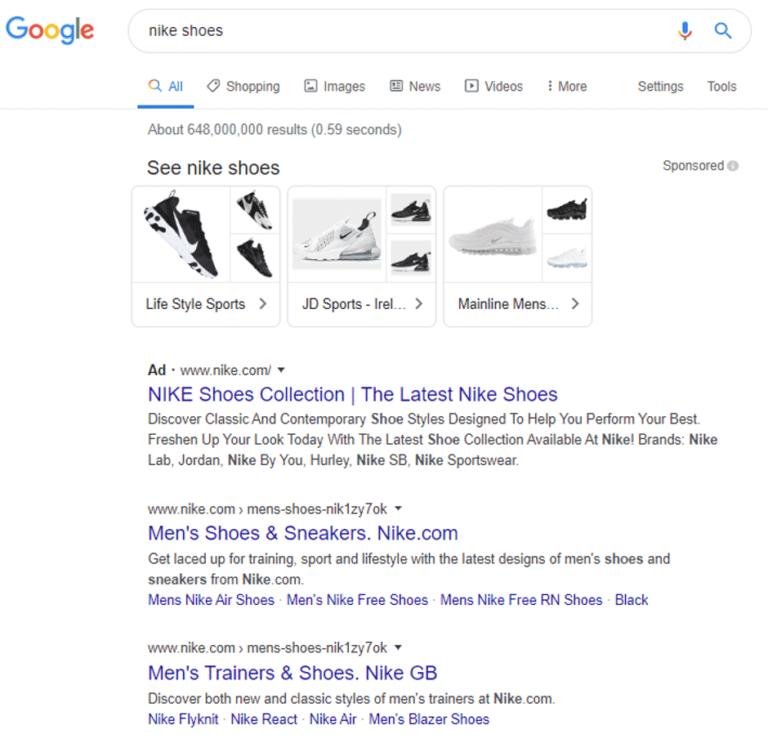
DEPENDING ON YOUR SEARCH QUERY, UP TO 4 ADS CAN APPEAR BEFORE THE FIRST ORGANIC RESULT.
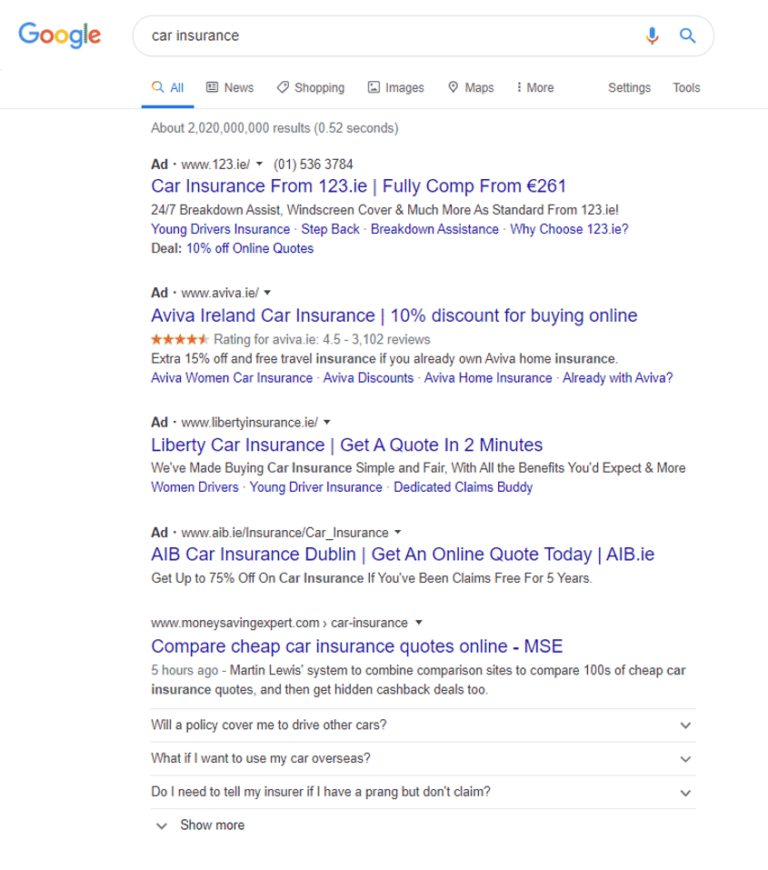
WHAT IS PAID SEARCH?
Paid search traffic comes from people clicking on paid ads in the search results. The most obvious example of this paid traffic is the text ads that appear above the search engine results page but there are a range of other paid ads that can appear in the SERPS such as Shopping Ads and Hotel Ads.
For paid search ads, marketers bid on keywords with ads and website pages that are relevant to those keywords. In the SERPS, you will see the ads as they will have the “Ad” label on the left hand side of the URL.
Unlike many other forms of advertising, it’s not necessarily the bidder who pays the most who will get the best visibility. Google wants to provide the most relevant results to users and they use a number of processes (such as your landing page experience, your ads relevance to the keyword and the expected click-through-rate of your ad) to ensure that the ads that rank in the SERPS are relevant to the user.
In both paid search and organic search, Google is interested in ensuring a great experience for searchers. If they didn’t focus on the user experience, they would lose their market share. For example, if you searched on Google and were continuously shown irrelevant results, you would use another search engine. If you provide relevant ads and landing pages to searchers, you will need to bid less to reach the top of the search engine results page.
THE BEAUTY OF SEARCH MARKETING
The beauty of traffic that comes from search engines is that it’s intent-driven.
Intent-driven marketing is any kind of marketing that aims to align its offering and messaging with what the potential customer wants at that particular moment. So a user is searching for a digital marketing agency in Dublin for example may be shown an ad for Sprint Digital.
Because search marketing revolves around getting traffic from people searching on Google, these searches reveal lots of intent.
For example, if you were a 4* Boutique hotel in Mayo, you would want to rank for keywords such as boutique hotels in mayo and 4 star hotels in Mayo as people typing these searches into Google are very likely to be interested in finding out more about your hotel.
WHICH ONE SHOULD YOU USE?
The main benefit of organic search compared to paid search is that organic search costs nothing. You don’t have to pay for the traffic, you just need to invest the time and resources to develop and execute an SEO strategy.
However, SEO is a long term investment, you usually don’t get immediate returns in a few weeks. With SEO, It can realistically take 6 months or more to climb up the rankings so if you need quick results, you will need to go with paid search. With paid search, the main benefit compared to organic search is that you can get quick results. You just need to create your campaigns and ads and then you will start showing up on the SERPS almost immediately.
In relation to which one to use, we think you should use both paid and organic search to maximise your visibility and presence.
In many cases, even if you rank number one organically for a particular keyword, people will have to scroll a lot before they can click on that result. For example, if you search for “car insurance”, you can see that there are four ads above the organic search results. As a result, many people will click on the ad even if you’re ranked number one organically.
If you are a business in nearly any industry and you don’t have a search marketing strategy, you are likely losing out on visitors, leads and customers.
